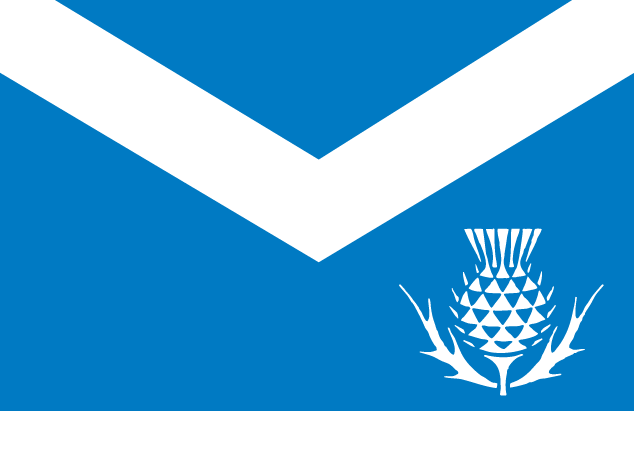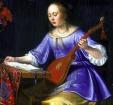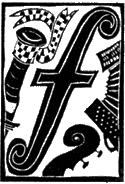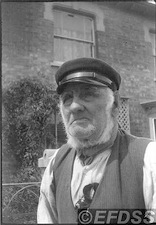May 2006
"Scots-L" Scottish music and culture resource pages
<92006 4Filed in: Music
"Scots-L" Scottish Music and Culture Resource Pages
These pages are provided as a resource for anyone interested in Scottish music — whether playing, performing, listening, dancing to it, or whatever, and the culture which gives (and gave) rise to this music. If you can't find what you are looking for there, please contact Ian Brockbank, not the webmaster of this site.Richard Robinson's Tunebook
<92006 4Filed in: Music
Richard Robinson's Tunebook
This is a collection of traditional tunes, and new tunes in traditional styles — Scots tunes, Irish tunes, Scandinavian, English, French, Balkan and more. They are available in two forms — as ABC notation, and as small black-and-white images of the written music. There are no sound recordings. The images are low-resolution (85dpi) and small (average size is around 5Kb). They are intended for on-screen use, and would be fairly ugly printed. If you want printed copy, I'd suggest using the ABC.Conrad Bladey's Beuk O' Newcassel Sangs
<92006 4Filed in: Music
Conrad Bladey's Beuk O' Newcassel Sangs
During the last many decades, yeah even centuries, so great has been the progress of education amongst the humbler classes of society, that many of those eccentricities so often seized upon by our local poets as subjects of humourous satire, are fast disappearing, and ere many more years shall have elapsed, the Songs of our Local Bards will be the only memorials of the peculiar characteristics of this ancient border town. Should an occasional coarseness of language meet the eye, let not the fastidious reader forget, that such were the modes of expression used by the parties described, and that elegance of language would be as much out of place as are the polished classical sentences of Shenstone's rustices, so often and so justly a theme of censure.— Adapted from the Newcastle Song Book or Tyne-Side Songster,
W.& T. Fordyce, Newcastle Upon Tyne.
The National Association of Gaelic Arts Youth Tuition Festivals
<92006 3Filed in: Art
Fèisean nan Gàidheal
The National Association of Gaelic Arts Youth Tuition FestivalsFèisean nan Gàidheal was established in 1988 as the independent umbrella association of the Fèis movement. The organisation offers grant-aid, training programmes, insurance, instrument-bank administration, published resources and many other services to its member Fèisean. This includes a regular newsletter entitled Faileas.
In addition to the Fèisean themselves, nearly 1,500 follow-on classes were supported by Fèisean nan Gàidheal in 2004-5. The total number of young people participating in Fèis activities over the year totalled 4,887.
Fèisean nan Gàidheal continues to support the Meanbh-chuileag Theatre Company, which tours schools with plays focussing on Gaelic culture and history. In addition, we deliver a programme of traditional music tuition in all Highland Council schools as part of the Youth Music Initiative. In 2004-5, 3,515 children saw a Meanbh-chuileag production, and 4,666 took part on the schools tuition, bringing the total number of children involved in Fèisean nan Gàidheal-supported activities to over 13,000.
Fèisean nan Gàidheal's staff has increased significantly in the past few years. The organisation currently employs 12 members of staff; a full-time director, development manager, finance officer and development officer; a part-time training officer; a part-time administrator; a full-time development worker for the Lochaber fèisean; two part-time support workers for area fèisean; two full-time project officers for Meanbh-chuileag, and a part-time collator for the Disclosure process. Fèisean currently provide employment for the equivalent of 11.8 full-time tutor posts, and new funding has enabled organisers to employ part-time administrators to support volunteer activity.
Scotland FAQ
<92006 3Filed in: Information
The Frequently Asked Questions (FAQ) for the soc.culture.scottish usenet newsgroup lives here. The FAQ contains hundreds of pages of information and is the first on-line guide to Scotland (founded Spring 1994). This version of the FAQ's web site typically receives well over 2,000 page views a day.
Includes a search engine.
Scottish National Dictionary
<72006 3Filed in: Language
Scottish National Dictionary
The Dictionary of the Scots Language (DSL) comprises electronic editions of the two major historical dictionaries of the Scots language: the 12-volume Dictionary of the Older Scottish Tongue (DOST) and the 10-volume Scottish National Dictionary (SND). DOST contains information about Scots words in use from the twelfth to the end of the seventeenth centuries (Older Scots); and SND contains information about Scots words in use from 1700 to the 1970s (modern Scots). Together these 22 volumes provide a comprehensive history of Scots, and a New Supplement now (2005) brings the record of the language up to date. These are therefore essential research tools for anyone interested in the history of either Scots or English language, and for historical or literary scholars whose sources are written in Scots or may contain Scots usages.Folk Music of England, Scotland, Ireland, Wales and America
<62006 3Filed in: Music
Electric Scotland
<72006 2Filed in: Information
Electric Scotland brings you comprehensive information on Scotland, Scots and people and places of Scots descent. Includes information on Scottish & Irish clans and families and their tartans. History of Scotland including it's early history, highland regiments, battles, places, famous Scots and connections with places around the world where Scots settled. You will also find lots more information on travel and tourism, poetry, humor, food and recipes. We also have a great Kids section where you can play games and find over 600 children's stories to read.
Folk Music Library
<72006 7Filed in: Music
Folk Music Library Goes Online
The Vaughan Williams Memorial Library today launches VWML Online.
Indexes to the collections of some of the best-known folk music collectors of the twentieth century are now available on the Library's website — http://library.efdss.org.
In the early years of the twentieth century, musicians and activists such as Ralph Vaughan Williams in East Anglia, Cecil Sharp in Somerset (and the Appalachian Mountains of the USA), Lucy Broadwood (Sussex), Henry and Robert Hammond in Dorset and George Gardiner in Hampshire collected hundreds of folk songs and tunes from agricultural workers, Gypsies and artisans in towns and villages in rural communities in England and beyond. For some — such as Vaughan Williams — the songs provided the inspiration for his compositions and editing The English Hymnal. Others, including Cecil Sharp, adapted the songs for use in schools. In recent decades, these songs have become increasingly popular as performed by musicians such as Martin Carthy, Norma Waterson, their daughter Eliza Carthy, and Kate Rusby. And now a whole new generation is becoming aware of the folk arts that surround them.
VWML Online allows anybody to search these important collections by titles, the source singers' names, and their place of residence and dates of collection.





